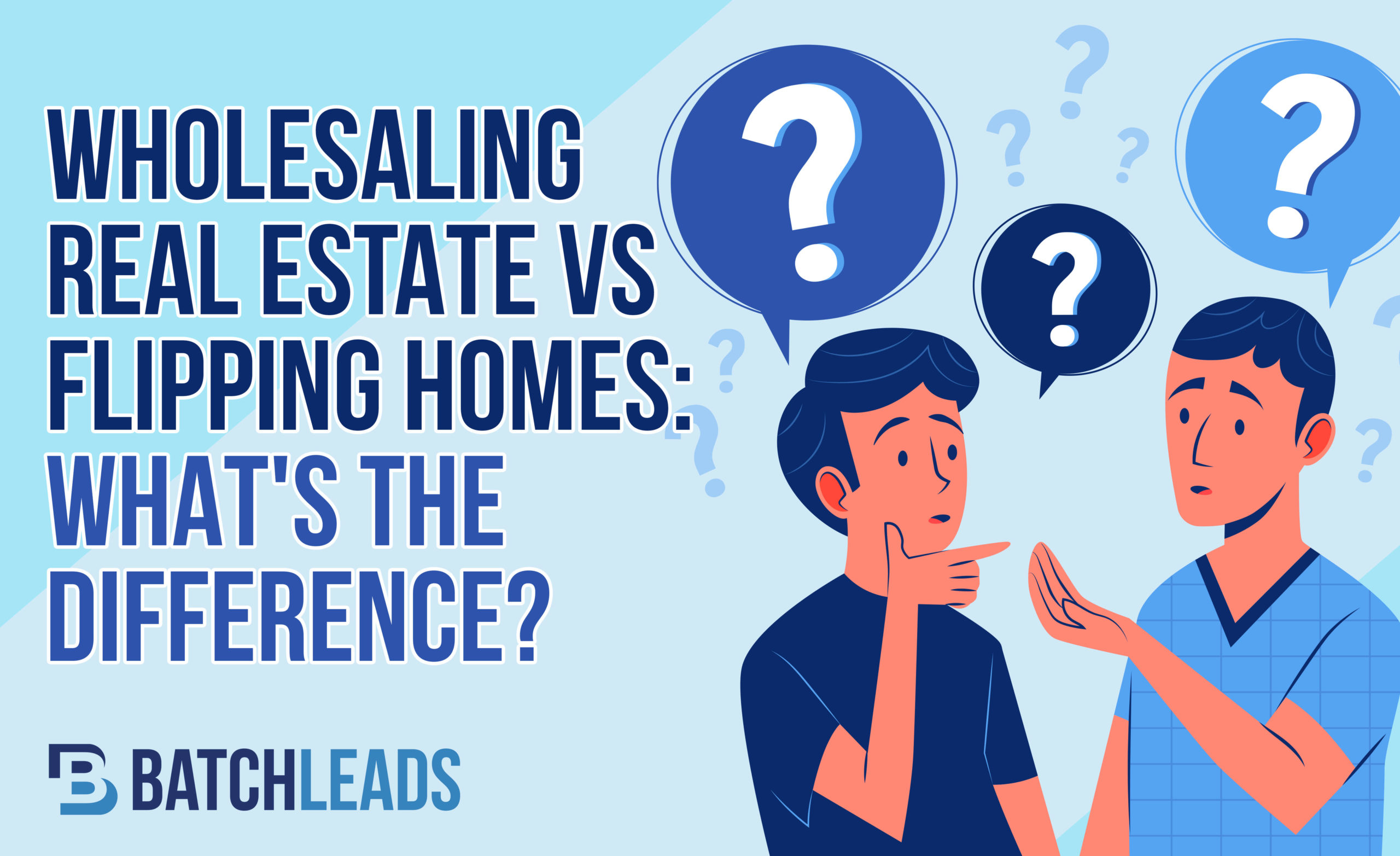House flipping has become one of the hottest forms of short-term investment. In the last decade, it has ballooned into one of the most common ways for amateur investors to put their money to work. Flipping is not the only way to make money off short-term property investments, though. You can also wholesale properties if you know how to do it.
Differences Between Wholesaling & Flipping Homes
Flipping properties tends to involve renovating the property to the peak market value. That means making improvements in line with the expectations of your eventual buyer. If you renovate commercial properties like apartment buildings or retail spaces, they can be flipped like homes, usually to investors looking at turnkey income properties. Wholesaling involves selling directly to another investor or seeking a buyer for an investor looking to sell a property. It uses different strategies because of regulatory limits to wholesaling by unlicensed investors, but it can be a great way to make profitable investments without committing a ton of resources to property improvement.
Wholesaling Property Benefits
The profit margins on wholesaling are not as wide as they tend to be with flipping, but there are a lot of advantages that make it an attractive option. First, the labor involved in turning a property is much lower. If you structure the deal so that you are finding a buyer for a seller’s property and taking a fee for the match, you don’t even have to finance the property or close on it in your own name. Using other strategies, you can hold properties for buyers to give them time to find financing or to line up contractors before passing it on. Your target customer is one looking to improve the property. You just need to match them to a property at a price that allows you to profit.
Benefits of House Flipping
House flipping gives you the opportunity to maximize per-sale profits, making it ideal for new investors who only have the capital to focus on one or two investments at a time. It is resource intensive, but with the right research into the market, the profit is relatively predictable for those who put the work in. It is also a great option to keep open if a neighborhood has rapidly rising prices and you have yet to find a wholesale buyer.
Wholesaling Risks
When you decide to get into the real estate wholesaling business, you do run some risks. The real estate market has its ebbs & flows, which can be unstable. You run the risk of property prices rising, having unreliable buyers or no buyers at all & no guaranteed income. When property prices are rising, it can indicate a profit missed out on you. In wholesaling, you want to get the seller to sell at the lowest price, but if property prices are high, it can make it more difficult to find a buyer willing to purchase the property. Finding the right connections and networking is essential in this business. Still, of course, you do run the risk of buyers who you thought were reliable backing out at the last minute, or you can not find a buyer for the property in the specific period of time stated in the contract. Lastly, the wholesaling industry is not like your standard 9-5 job. There is instability that comes along with it in which you need to be ready for contracts & sales to pan out in your favor. Overall, it is crucial to be smart about your finances, take the time to network with reliable buyers, and roll with the punches if you want to be successful in the real estate wholesaling business.
Fix & Flip Risks
The risk of loss with flipping is often higher than with wholesaling. It is relatively easy to judge whether a property is undervalued for its condition before seeking a buyer of your own for the final sale. It’s harder to be sure you can invest the labor and capital needed to maximize a property’s value while the neighborhood is still fetching peak prices.
Should You Wholesale or Fix & Flip Properties?
Investors with a real estate sales license or a brokerage license have the widest range of choices. For unlicensed investors, it comes down to your social network. If you can move properties without marketing them, wholesaling is the best choice. Otherwise, flipping is the option with wide enough profit margins to absorb the cost of a realtor. Licensed investors simply need to do a cost/benefit analysis for each property acquisition and let the numbers decide whether it’s easier to resell with or without improvements.



